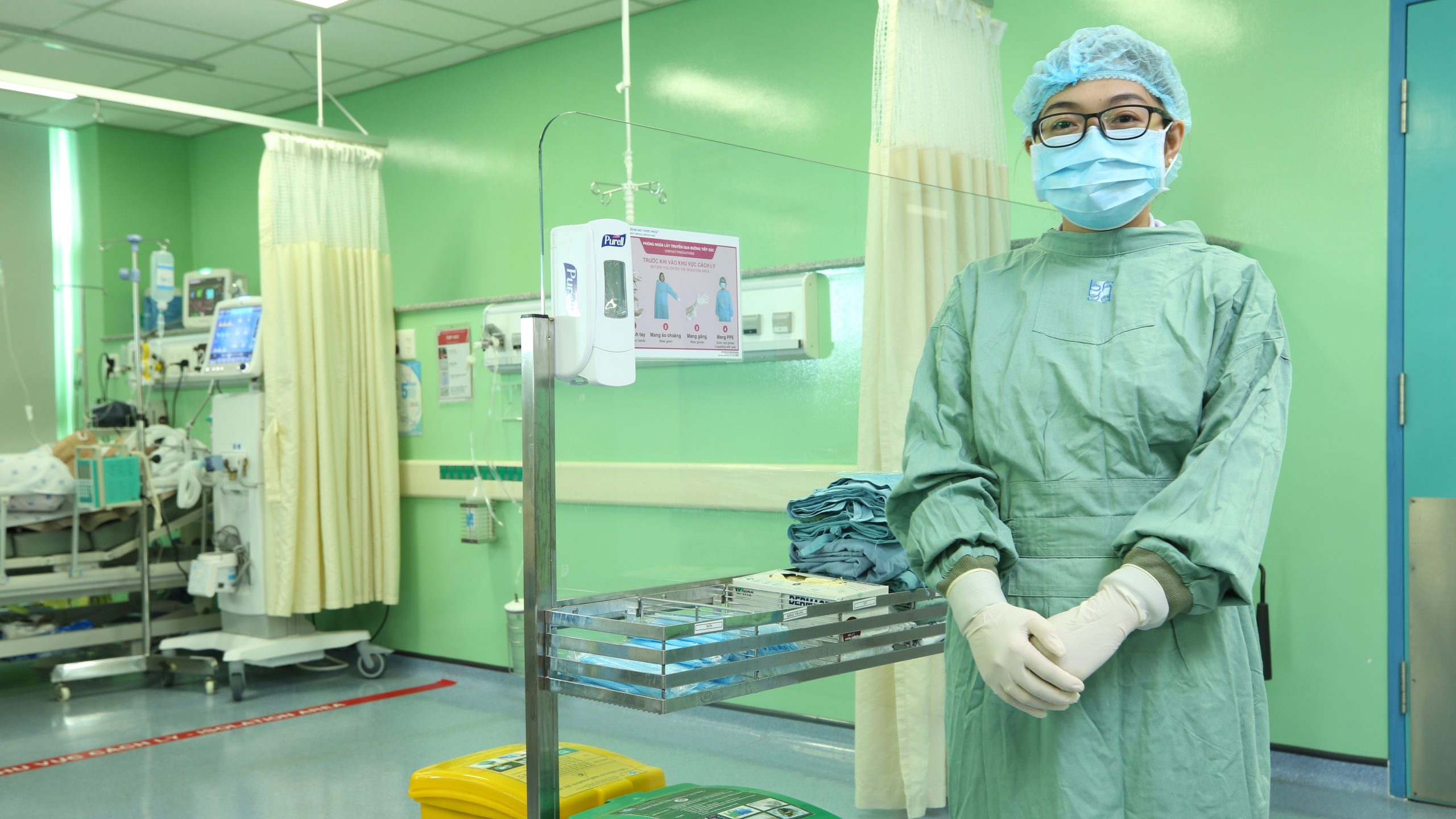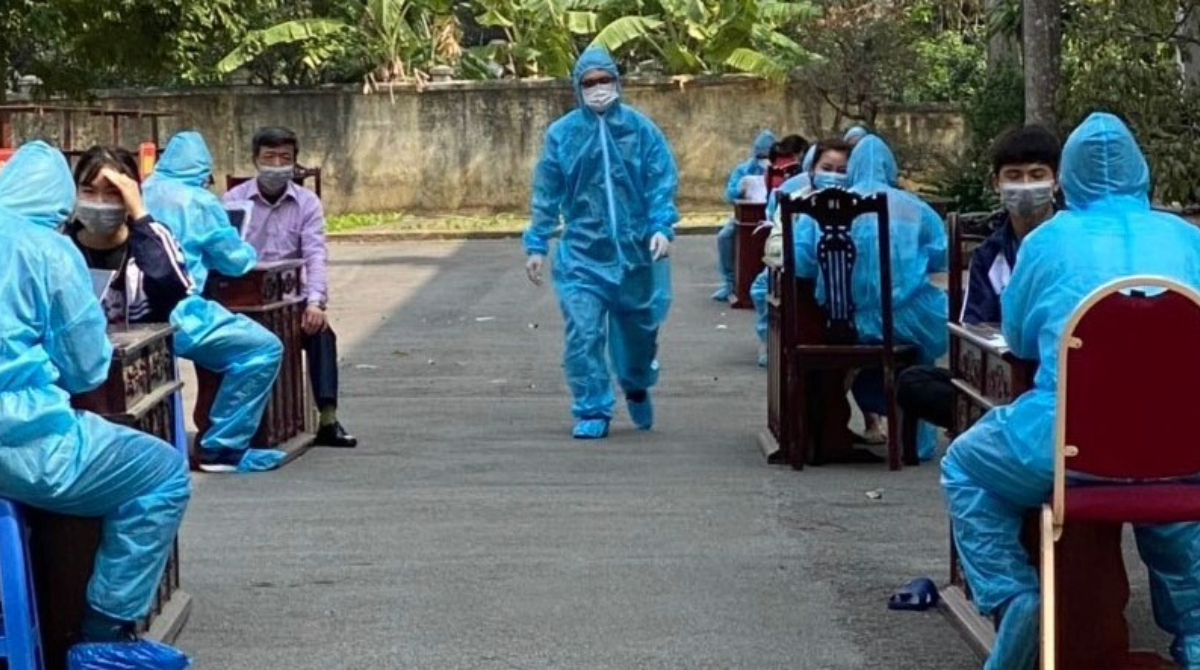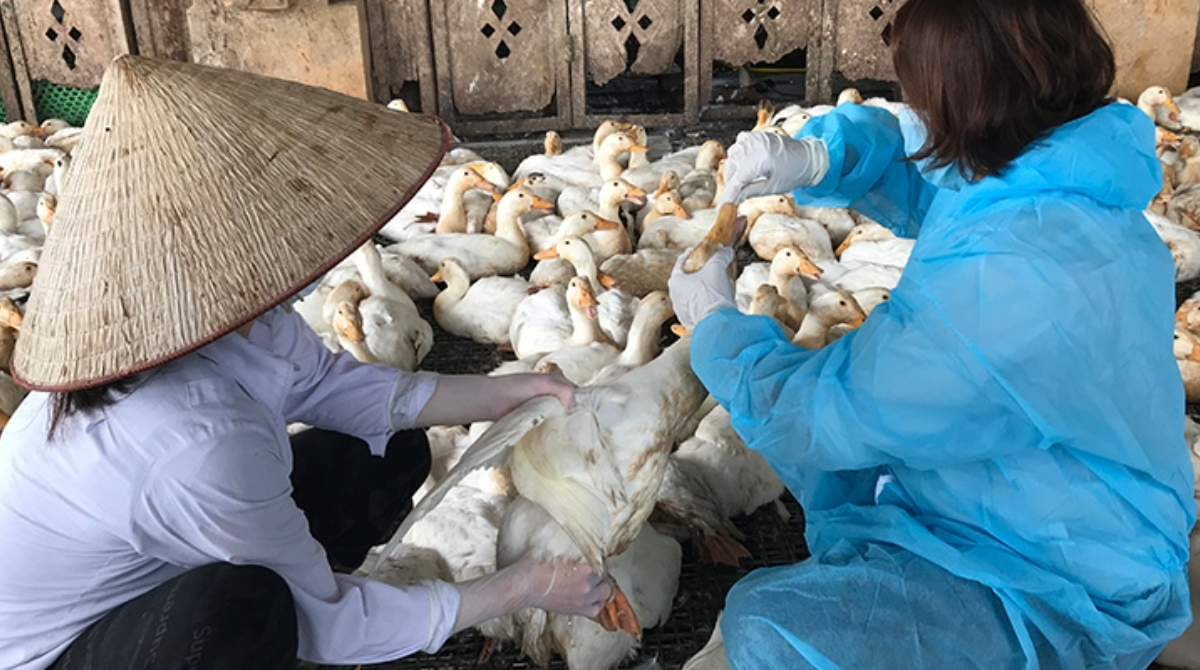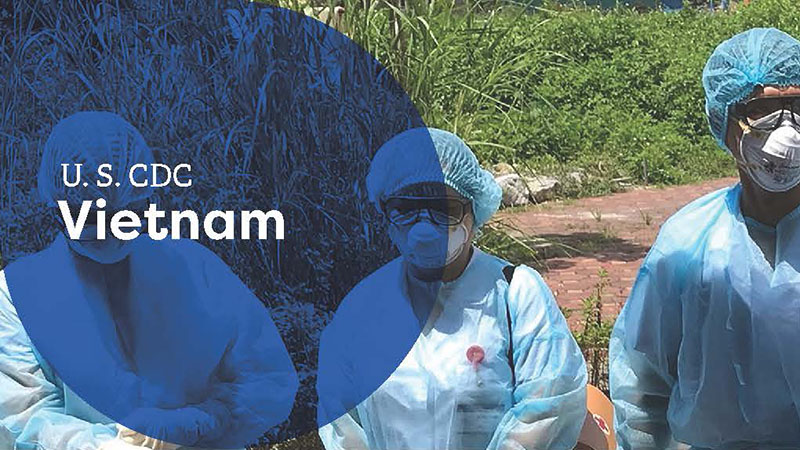At a glance
CDC works with the Vietnam Ministry of Health (MOH) and other partners to build effective public health collaboration and partnerships, which strengthen the country's core public health capabilities: data and surveillance, laboratory capacity, workforce and institutions, prevention and response, innovation and research, and policy, communications, and diplomacy.

Overview

CDC has worked in Vietnam since 1998. CDC works closely with the Government of Vietnam and partner organizations to detect, prevent and control infectious disease outbreaks and build and strengthen the country's core public health capabilities. These include data and surveillance, laboratory capacity, workforce and institutions, prevention and response, innovation and research, and policy communications and diplomacy. CDC's work aims to protect the health of our nations and public health around the world.
CDC provides direct technical support and expertise to the MOH to build high-quality, sustainable public health systems and scale up programs that address priority diseases and addresses the following public health areas:
- Antimicrobial resistance
- Emergency response
- HIV and tuberculosis (TB)
- Immunizations
- Influenza
Global health security
CDC's global health security work in Vietnam focuses on reaching the goals outlined in the Global Health Security Agenda (GHSA) and strengthening the country's public health systems across the following core areas:
Laboratory systems strengthening
CDC has helped Vietnam develop national strategic plans, a public health reference laboratory network, a biosafety and biosecurity system, whole genome sequencing capacity and improved the capacity of clinical laboratories to detect antimicrobial-resistant pathogens.
Emergency response
Decades of investment in global health security, partnerships, HIV and TB control, and pandemic preparedness efforts have built strong foundations that Vietnam leveraged to respond to the COVID-19 pandemic. Vietnam was at the forefront of global efforts to detect COVID-19 outbreaks. The country was a leader in the rapid deployment of vaccines—successfully achieving a 95 percent adult vaccination rate for primary doses. CDC's technical staff continue to partner with the MOH to ensure emergency preparedness for public health threats by:
- Developing national guidelines for surveillance, quarantine, laboratory testing, and infection prevention and control (IPC).
- Assisting in investigations to protect communities.
- Providing data analysis to the government to make informed decisions.
- Providing training on sample collection, biosafety, and testing.
- Supporting risk assessments regarding border surveillance and testing requirements.
Workforce development

CDC supports training public health professionals through the Field Epidemiology Training Program (FETP) in all 63 provinces in Vietnam. Through FETP, CDC strengthens Vietnam's workforce capacity to identify and stop outbreaks before they spread.
Key achievements
- As of 2023, CDC helped develop a surveillance system for antimicrobial resistant pathogens that is used in 54 laboratories across the country.
- CDC provided training on COVID-19 testing, biosafety, and sample collection at hospitals in all 63 provinces during the COVID-19 pandemic.
- More than 400 surveillance staff have graduated from the 3-month FETP-Frontline since 2019.
- Since 2021, 34 trainees have graduated from the 9-month FETP-Intermediate.
- A 12-month FETP-Advanced is planned to launch in 2024.
- In 2017, CDC established a national public health reference laboratories network in three major cities, which supports state-of-the-art diagnostic capacities and the ability to characterize new diseases with whole genome sequencing.
HIV and TB
As a key implementer of the U.S. President's Emergency Plan for AIDS Relief (PEPFAR), CDC plays an essential role in the fight against HIV and TB. With unmatched scientific and technical knowledge and long-standing relationships with ministries of health, CDC is uniquely positioned to advance HIV, TB, and other global health security activities that keep Americans safe at home and abroad.
Through PEPFAR, CDC provides critical support to Vietnam's public health infrastructure, improving the country's ability to prevent, detect, and respond to HIV, TB, and other infectious diseases and minimizing their risk from entering the U.S.
Influenza

CDC has partnered with Vietnam to provide support for influenza preparedness since 2005. CDC helped establish two National Influenza Centers in Hanoi and Ho Chi Minh City for rapid detection of novel or seasonal influenza viruses. CDC supports influenza surveillance, for severe acute respiratory infections, and supports improved testing quality through domestic and international training and proficiency testing. CDC also strengthens national capacity to detect avian influenza outbreaks through activities such as live bird market surveillance.
Additionally, the agency supports national capacity to respond to novel influenza viruses. Annually, over 2,000 specimens from hospitalized patients in Vietnam are tested for influenza viruses. Selected human and poultry specimens with positive influenza A results are sent to the World Health Organization (WHO) Collaborating Center in Atlanta for further characterization and potential inclusion as candidate vaccine strains. CDC also supports the strengthening of collaboration between human and animal health sectors.
Key achievements
- Between September 2019 and 2023, Vietnam vaccinated more than 400,000 healthcare workers in 35 provinces with IVACFLU-S, locally produced influenza vaccine produced by a local manufacturer licensed since 2019.
- Due to Vietnam's and CDC's surveillance-strengthening efforts, the Department of Animal Health, detected its first in-country cases of H5N8 avian influenza in poultry and live bird markets in June 2021.
- Supported revitalization of influenza surveillance in Vietnam. A hospital-based surveillance system for influenza was established in 2022 in 3 of 4 regions of Vietnam to facilitate sharing of human influenza specimens to a WHO Collaborating Center (WHO CC) and reporting of influenza surveillance data to an international platform. In December 2023, the first samples since 2018 were shared with a WHO CC. These samples and data are critical for informing selection of candidate viral strains for influenza vaccine.
- More than 20 publications on influenza surveillance and research, including H5 virus circulation in live bird markets in Vietnam.
- Annual sharing of approximately 2,000 influenza positive specimens from poultry to CDC Atlanta to support pandemic preparedness.
Immunization
CDC supports the Government of Vietnam to improve vaccine coverage and strengthen the national immunization program by ensuring vaccine access through vaccination policy and guidance development, providing technical assistance for future new vaccine introductions, and targeting hard-to-reach populations and school children for delivery of routine immunizations.
Key achievements
- CDC supported Vietnam in the revision of national vaccine policies, including ensuring that children with missed vaccines can receive them through the national immunization program.
- CDC and the Government of Vietnam piloted routine immunization screening in schools in 12 provinces to identify children who have missed required vaccine doses.
- CDC works in four provinces to increase hepatitis B birth dose vaccine coverage, identifying interventions tailored to each province.
